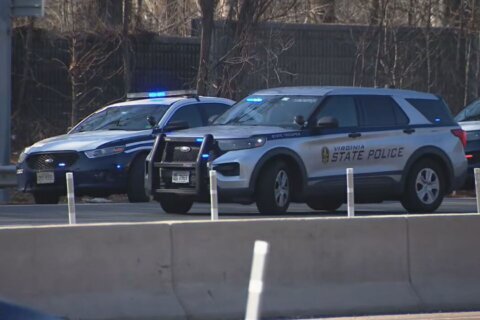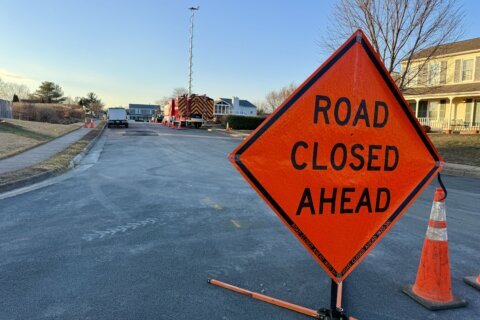FAIRFAX, Va. — With Virginia car tax payments due Monday, people who live in Fairfax County will be paying about $2 million in penalties — even if the bills are paid on time.
Director of the Fairfax County Department of Tax Administration Kevin Greenlief says up to 9 percent of all bills may include a 10 percent penalty for failing to register a new car with his department within 60 days.
The percentage of bills on new cars with that penalty would be higher when bills on cars that have already been registered in the county are excluded.
“We do match to Virginia DMV records, so we’re watching that, and although the law requires you to register with my office, and you incur a 10 percent penalty if you don’t register on time, we try to help taxpayers avoid that penalty,” he says.
The county posts notices at Department of Motor Vehicles offices and mails out letters.
“It’s actually a relatively small amount,” he says of people who fail to properly file the form with the county required by state law for any newly acquired vehicles.
“In total, the penalty for late filing brings in about $2 million to the county per year, that’s about half of one percent of all of the car taxes we assess,” he says.
In fiscal year 2014, the county collected $362.7 million in total personal property tax payments.
Payments for this year are due Monday, Oct. 5 except for cars that have been bought or moved to the county after July 1. Bills for those are mailed in January.
Greenlief says the local registration requirement, which also applies to cars of people who move to Virginia or into a new jurisdiction in the state, is more than just a formality.
“One, it’s a state legal requirement, but two, there really is a value in it that it helps with data validation and provides us with contact information with the taxpayer,” he says.
“We see lots of times of the dealers putting the wrong garage jurisdiction down or other information, so the local registration in addition to being a state legal requirement really helps us maintain the accuracy of our tax records,” he adds.
The late filing penalties can be waived after an application if the issue is not the fault of a taxpayer or is the result of an issue in the county office.
“We give strong consideration to applications for waivers, we try to give the benefit of the doubt to the taxpayer wherever we can substantiate it, simple ignorance of the law unfortunately is not grounds for a waiver,” he says.
Also, the department acts on online tips from the public about people who may be trying to skirt the car tax by maintaining out-of-state license plates.
“We identify who owns the vehicle, we connect them to Fairfax County, and if that’s the case we’ll go ahead and assess them,” he says.
The department can check the vehicle registration against Virginia employment records, local income tax records or voter registration.
In those cases — in addition to the late filing penalty — a no plate tax or penalty adds an additional $350 to the bill.
“We absolutely are looking to identify and assess those cars,” Greenlief says.
He says the assessment and fees on those cars amount to about $500,000 in total payments each year.
There are separate penalties for anyone who fails to pay a car tax bill on time.
“If you don’t pay your taxes by Oct. 5, you incur an additional 10 percent penalty on top of everything you’ve been assessed to date, and again that’s state law, if you then let it remain delinquent for more than 30 days, your penalty jumps up to 25 percent, and again that’s a state legal requirement, but it’s a strong inducement to pay your taxes on time,” he says.
Payments must be submitted online or postmarked by Monday.
Greenlief says his department always hopes to have everyone file and pay on time, but it does not happen.
“If you can’t pay your car tax, the last thing you want to do is just put your head in the sand and not pay it, you’ll incur additional penalties and then there’s significant collection actions that can happen,” he says.
“If you really have a financial issue, the best thing is to contact my office, my staff can work with you, we can develop a payment plan,” he adds.
While there are still some penalties and interest, under a payment plan, the county would not begin a collections process.







